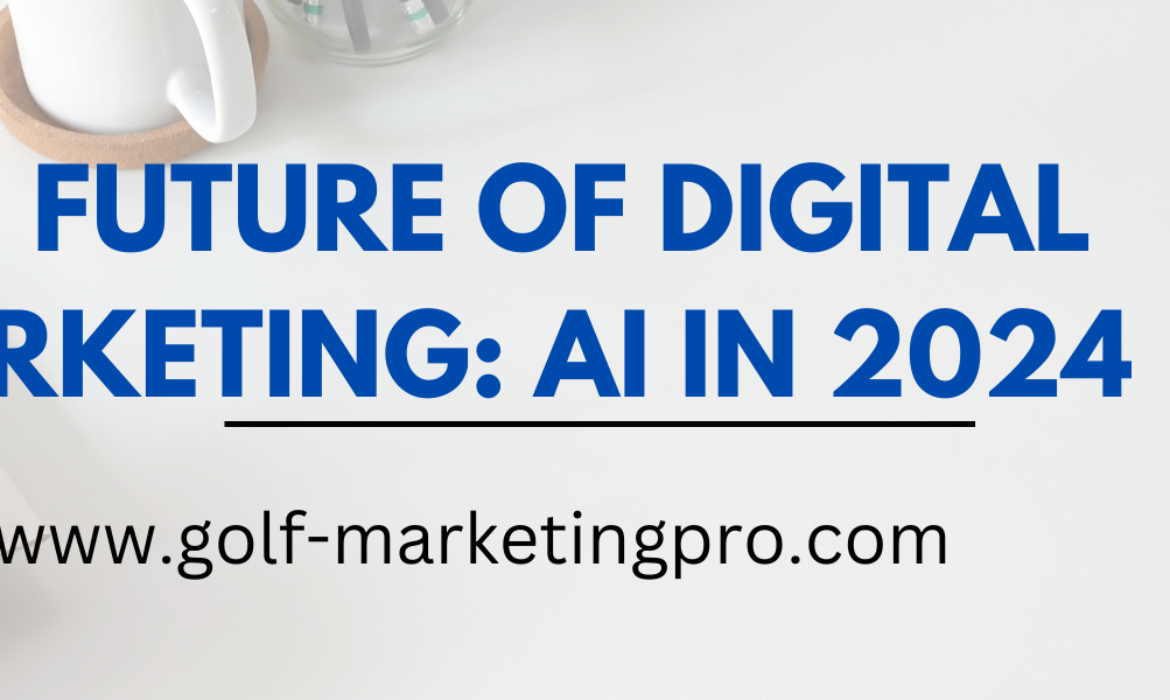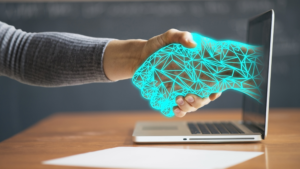The Future of Digital Marketing: AI in 2024
Hey are you looking for new things in digital 2024 read it carefully watch video
Take coffee or tea and sit back and read it carefully. I know you are fed up with the same thing every day. 2024 digital marketing will bring you new technologies.
Let me ask you one thing, do you eat the same food every day? Obviously, no, take the example of a chicken burger have you ever tried a chicken tikka burger? I have used the example because, for the past fifteen years, digital marketing has been the same. In 2024 we will bring new things. AI made everyone’s life easy. AI also depends upon real intelligence which is human. You might be thinking what kind of nonsense writer is this? Burger and digital marketing are two different thing.
HUMAN intelligence is a powerful thing.
Digital marketing two words means technology plus marketing. The meaning of digital marketing will remain the same the inclusion of new technology add flavor to digital. Digital marketing today is complex and it’s inevitable it will get more complex in the future as new technologies and platforms emerge. Take the recent rapid adoption and interest in Instagram Threads and Open AI ChatGPT, as an example. Marketers also have to contend with the complexity of the many channels we need to track in our analytics such as organic and paid search, social media, display, and email marketing the addition is artificial intelligence.
Digital on its own deals with insights of electronics and as well as marketing definition and working will remain same. Traditional
Digital on its own deals with insights of electronics and as well as marketing definition and working will remain same. Traditional marketing covers social media marketing (for the best difference watch Dr. Vivek Bindra’s video link)it’s not difficult how digital marketing works in 2024.
Q Here the question comes to our mind if it is complex then why and how we can do it?
Ans: It is getting complex as the competition is very high. Strategies and planning will help you. Do one project and focus on one project at a time.
Q Why we get tried ?
Ans: Time management is the simple answer 24 hours divide 24 hours
-
Personalization: Personalized marketing remains a key trend in digital marketing. In 2024, businesses would likely continue to leverage data and AI to create highly tailored content and offers for individual consumers. This could include personalized product recommendations, email marketing, and website content. Email marketing is another domain where AI-driven personalization is making a significant impact. AI determines the optimal time to send emails, optimizes subject lines, and tailors content, resulting in higher open rates and engagement. Additionally, AI can segment email lists and deliver content tailored to different customer groups, enhancing the overall user experience
- Content Generation and Curation: Content remains a cornerstone of digital marketing, and AI is streamlining the content creation and curation process in 2024. AI-powered tools can generate written content, such as articles, blog posts, and product descriptions, with human-like fluency and coherence. This technology is particularly valuable for businesses looking to produce a large volume of content quickly.
AI can also curate content by analyzing user preferences and behavior. For instance, news websites and streaming platforms use AI to recommend articles, videos, and music based on a user’s previous interactions and interests. Content curation not only enhances the user experience but also increases the time users spend on the platform.
3 Video Content: Video marketing has been on the rise for several years, and it’s likely to remain a dominant force in 2024. Live streaming, short-form videos, and interactive video content would continue to gain popularity. Video Marketing and Personalized Video . Video marketing continues to be a powerful tool in digital marketing, and AI is enhancing the video creation and personalization process. AI can automatically edit and customize videos based on user data, creating more engaging and personalized content. Personalized video marketing involves tailoring video content to specific viewers. AI can dynamically insert the viewer’s name, location, or even content recommendations within the video. This level of personalization captures the viewer’s attention and increases engagement
Moreover, AI-driven video analytics provide insights into viewer behavior. Businesses can analyze how long viewers watch their videos, which parts are most engaging, and where viewers drop off. This data helps marketers optimize their video content for better performance.
 4.Voice Search Optimization: With the increasing use of voice-activated devices and voice search, optimizing content for voice search would become more critical. This involves understanding how people use voice search and creating content that matches those queries.
4.Voice Search Optimization: With the increasing use of voice-activated devices and voice search, optimizing content for voice search would become more critical. This involves understanding how people use voice search and creating content that matches those queries.

Virtual reality
5.Augmented Reality (AR) and Virtual Reality (VR): AR and VR technologies could play a more prominent role in digital marketing. Businesses might use these technologies for immersive product experiences, virtual showrooms, and interactive advertising.

Social media
6.Social Commerce: E-commerce integrated with social media platforms is likely to continue evolving. Businesses would leverage social media for direct sales, product discovery, and influencer partnerships.
7. Content Quality and Authority: High-quality, authoritative content would remain crucial for SEO and digital marketing success. Google and other search engines are expected to prioritize content that demonstrates expertise, authoritativeness, and trustworthiness.
 8. Data Privacy and Compliance: Data privacy regulations are expected to become even stricter. Marketers need to be more cautious about how they collect, store, and use customer data. Consent-driven marketing and compliance with data protection laws will be vital.
8. Data Privacy and Compliance: Data privacy regulations are expected to become even stricter. Marketers need to be more cautious about how they collect, store, and use customer data. Consent-driven marketing and compliance with data protection laws will be vital.
 9.AI and Automation: Artificial intelligence and automation would continue to play a significant role in optimizing marketing efforts. This includes AI-driven chatbots, email personalization, and predictive analytics for customer behavior. The landscape of digital marketing has evolved significantly in recent years, and AI (Artificial Intelligence) has emerged as a pivotal force in this transformation. As we approach 2024, the integration of AI in digital marketing is poised to play an even more central role. AI is redefining the way businesses engage with their audience, comprehend consumer behavior, and optimize their marketing strategies. This article delves into the role of AI in digital marketing in 2024, exploring its impact on marketing strategies, customer engagement, and the broader industry.
9.AI and Automation: Artificial intelligence and automation would continue to play a significant role in optimizing marketing efforts. This includes AI-driven chatbots, email personalization, and predictive analytics for customer behavior. The landscape of digital marketing has evolved significantly in recent years, and AI (Artificial Intelligence) has emerged as a pivotal force in this transformation. As we approach 2024, the integration of AI in digital marketing is poised to play an even more central role. AI is redefining the way businesses engage with their audience, comprehend consumer behavior, and optimize their marketing strategies. This article delves into the role of AI in digital marketing in 2024, exploring its impact on marketing strategies, customer engagement, and the broader industry.
AI can analyze historical data and predict future trends, empowering marketers to make more informed decisions and allocate resources more effectively. This technology is particularly valuable for forecasting demand, optimizing ad spend, and identifying emerging market opportunities.
 10. Blockchain in Advertising: Blockchain technology may be used to increase transparency and security in digital advertising. It can help combat ad fraud and ensure that ad impressions and clicks are legitimate
10. Blockchain in Advertising: Blockchain technology may be used to increase transparency and security in digital advertising. It can help combat ad fraud and ensure that ad impressions and clicks are legitimate
11. Chatbots and Virtual Assistants In 2024, AI-powered chatbots and virtual assistants are becoming indispensable in customer service and engagement. These AI-driven tools offer real-time assistance, respond to customer queries, and provide personalized recommendations, even outside of regular business hours.
Chatbots are prevalent in various industries, from e-commerce to travel and hospitality. They provide instant responses to customer questions, guide users through product selection, and assist with the checkout process. Moreover, they continually learn from customer interactions, enabling them to offer more accurate and valuable responses over time.
Virtual assistants, such as Amazon’s Alexa and Google Assistant, also play a pivotal role in AI-driven marketing. They can recommend products, facilitate purchases, and offer valuable information to users. Marketers are exploring voice search optimization and developing voice-activated applications to reach customers through these platforms
 12.Sustainability and Ethical Marketing: Environmental and ethical concerns would continue to influence consumer behavior. Brands that incorporate sustainability and ethical practices in their marketing strategies are likely to gain favor with conscious consumers.
12.Sustainability and Ethical Marketing: Environmental and ethical concerns would continue to influence consumer behavior. Brands that incorporate sustainability and ethical practices in their marketing strategies are likely to gain favor with conscious consumers.
13. Community Building: Building and nurturing online communities around products or brands can be a valuable marketing strategy. These communities can provide support, engagement, and valuable feedback.
It’s important to note that the digital marketing landscape is constantly evolving, and staying up to date with the latest trends and technologies is essential for marketers. As of my last update, these were some of the prevailing trends, and the actual landscape in 2024 might include additional developments and changes.

Islamic Coin Versus Crypto Coin (part-1)
There is lots of confusion going on what is the difference between Islamic coin and crypto coin . In our blog we try to clear the confusion.
Islamic coin and crypto coin are two different types of currencies that operate on different principles and have distinct characteristics. Islamic coin is based on the principles of Islamic finance, while crypto coin operates on the block chain technology. In this blog, we will explore the differences between these two types of coins.
Islamic Coin

Islamic coin is a digital currency that operates on the principles of Islamic finance. Islamic finance is a system of finance that is based on the principles of shariah, which is the Islamic law. The principles of shariah prohibit charging or paying interest, engaging in speculative or unethical investments, and investing in industries that are considered harmful to society, such as alcohol, gambling, and pornography.
Islamic coin, therefore, is designed to operate within the framework of Islamic finance. It is a digital currency that is backed by tangible assets, such as gold or silver, and is used for transactions within the Islamic financial system. Islamic coin is also designed to promote social responsibility, ethical investments, and sustainable development.
One of the key features of Islamic coin is that it is based on a profit-sharing model. In this model, the profits generated by the currency are shared between the holders of the currency and the issuer of the currency. This is in contrast to conventional currency, where profits are generated through interest payments.
Another important feature of Islamic coin is that it is based on a decentralized system. This means that there is no central authority that controls the currency. Instead, the currency is managed by a network of users who validate and verify transactions through a consensus mechanism. This ensures that the currency is transparent, secure, and immune to manipulation.
Crypto Coin

Crypto coin, on the other hand, is a digital currency that operates on the blockchain technology. Blockchain technology is a decentralized ledger that records transactions in a secure and transparent manner. Crypto coin is designed to be used as a medium of exchange and to operate outside the traditional banking system.
One of the key features of crypto coin is that it is based on a decentralized system. This means that there is no central authority that controls the currency. Instead, the currency is managed by a network of users who validate and verify transactions through a consensus mechanism. This ensures that the currency is transparent, secure, and immune to manipulation.
Another important feature of crypto coin is that it is based on cryptography. Cryptography is a method of encrypting data to ensure that it is secure and confidential. Crypto coin uses cryptography to secure transactions and to protect the privacy of its users.
Differences between Islamic Coin and Crypto Coin

There are several differences between Islamic coin and crypto coin. The main differences are as follows:
- Basis of Value: Islamic coin is based on tangible assets, such as gold or silver, while crypto coin is based on the perceived value of the currency.
- Profit Sharing Model: Islamic coin is based on a profit-sharing model, where the profits generated by the currency are shared between the holders of the currency and the issuer of the currency. Crypto coin does not have a profit-sharing model.
- Decentralized System: Both Islamic coin and crypto coin are based on a decentralized system. However, Islamic coin is designed to operate within the framework of Islamic finance, while crypto coin operates outside the traditional banking system.
- Use of Cryptography: Crypto coin uses cryptography to secure transactions and protect the privacy of its users. Islamic coin does not use cryptography.
- Regulation: Islamic coin is regulated by Islamic financial institutions, while crypto coin is not regulated by any central authority.
Islamic coin and crypto coin are two different types of currencies that operate on different principles and have distinct characteristics. Islamic coin is based on the principles of Islamic finance and is designed to promote social responsibility, ethical investments, and sustainable development. Crypto coin, on the other hand, is based on the blockchain technology.
Note :- Blockchain technology is an advanced database mechanism that allows transparent information sharing within a business network.






